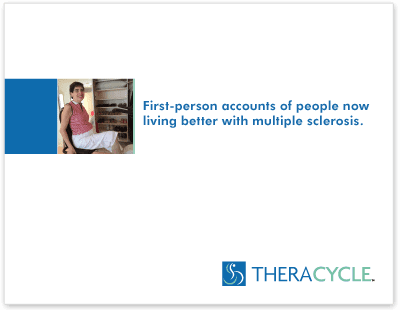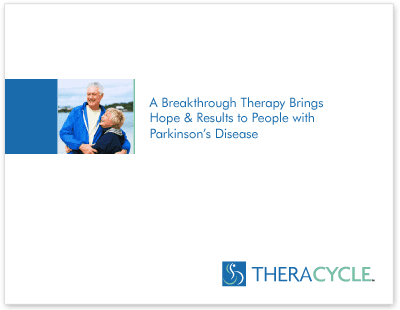- ›
- Stories
- ›
- Uncategorized
- ›
- Parkinson’s Disease: Holiday Tips from a Medical Doctor
Stories
Parkinson’s Disease: Holiday Tips from a Medical Doctor
 One of our favorite resources for events, programs and general information for the Parkinson’s community is the American Parkinson Disease Association.
One of our favorite resources for events, programs and general information for the Parkinson’s community is the American Parkinson Disease Association.
Here’s a timely post from their National Young Onset Center written by Marshall “Dopadoc” Davidson— a New Jersey-based M.D. who was diagnosed with early-onset Parkinson’s disease back in 2005, when he was 44.
Beyond this article, Marshall runs a blog called “Dopadoc’s Parkinson’s Journal” and is worth a follow on Twitter: @dopadoc.
Here’s Marshall Davidson’s “New Years and Holiday Recommendations for Parkinson’s Sufferers”
10 New Years and Holiday Recommendations for Parkinson’s Sufferers
by Marshall Davidson
The holidays can be a bittersweet time for many of us, who have a tough enough time negotiating life with Parkinson’s during normal months. With the holidays there’s more potential for difficulties. There’s temptation to indulge in excess food and drink, and crowds of people in malls and on the road, it’s cold in many places, and it get’s dark early. You see family and friends who have not seen you in a while since maybe things have progressed. It can all be rather overwhelming.
Here are 10 suggestions to help make your holiday season more enjoyable and less encumbered by some of these difficulties.
1. See your doctor if you feel depressed: Depression is very common during the early winter months of December and January. This may be related to a component of the hustle and bustle of the holidays themselves with all the expectations and disappointments that go with it. But there may also be a component of seasonal affective disorder with shorter days and less light to induce healthy sleep/wake cycles, already interrupted in PD. If you casually tell someone you feel depressed very often they may even say, ” don’t worry it’s just the holidays.” Depression is depression. You deserve to be happy and there are some very good treatments available to help you.
2. Moderate food and drink: This one is obvious so I’m just reminding you that there is always a lot of peer pressure to indulge. Be especially watchful if you have been sticking to a certain diet that helps your Parkinson’s or if your protein intake has been carefully regulated because you take L-dopa. Let go and indulge occasionally so as not to feel deprived. However, try and stick to the same general diet that you been following all year. Further, I don’t have to remind you that alcohol can exaggerate some of the motor symptoms of imbalance and an already-slowed reaction time, very key during a time when there are a lot of people on the road, not all of them sober.
3. When seeing friends and relatives keep it light and upbeat: when a relative or acquaintance asks you how things are going, they don’t always want a blow-by-blow account of where you are with the Parkinson’s. Holidays feel better when you reach out and focus on how they have been, and what they have been doing. As the legendary self-help guru Dale Carnegie said,” get people talking about their favorite subject, themselves.” Try and actually get genuinely curious about others, especially to the degree that keeps you out of your own head. The less attention you give to your own disabilities, the less attention others will focus on them as well.
4. Keep exercising: Exercise is the single one best thing you can do for your Parkinson’s. Holiday engagements, shopping, appointments, parties and especially travel, can all get in the way of exercise routine. Do your best even if limited to a guest room or sofa at the house of a relative to try and exercise, get outside and walk, and do anything to try and keep active.
5. Avoid the strong temptation toward social isolation: There are several good reasons why a person with PD would want to retreat during the holiday season. You are likely to run into people who you haven’t seen for a while and thus, you may be afraid that they might be able to notice some deterioration or progression of your symptoms. It could be rather cold outside which may affect your symptoms. With less total daytime at this time of year you may feel worsening of your fatigue and daytime sleepiness. No matter what the case, it’s better for you to stay socially engaged, especially during this time of year. Many key relationships get renewed now. Social interaction has been proven to lower the risk of dementia and depression. And of course, as much as you may anticipate it negatively, getting face-to-face with the people you love and cherish almost always turns out much better than you had negatively anticipated. The exception is that you best avoid those who are frankly toxic to you. They get worse during the holidays.
6. Prepare all your clothing the night before a social event: especially if you have particular difficulty with dressing. The normal time it takes to wait for medications to work in the morning, plus any feelings of fatigue or daytime sleepiness may push you towards the tendency to isolate. If you’re closer to being ready to go by having things our, you’ll likely find more strength and conviction to resist that temptation to stay home. This can be especially true in the cold weather which can be particularly discouraging.
7. Time your shopping and driving to less-than-peak times: it is not social isolation to want to avoid crowds and traffic. People become impatient from waiting in line or in traffic. Many of the limitations of Parkinson’s disease tend to slow us down relative to normal folk. As you know there many times when you just can’t help it, but try to avoid situations where you might find yourself as the one holding up a line of impatient people.
8. Get your medical ducks in line for next year: make sure insurance premiums are paid, you have your next neurology appointment scheduled, and if you are receiving or applying for any special assistance programs or disability payouts, check that all your paperwork is in order and where it needs to be on time. Also check your medications for the number of refills left, etc. so that you can enter the new year well taken care of.
9. If you live anywhere cold stock up on frozen microwave-able meals: When there’s a snowstorm, just walking outside can be treacherous for a sufferer of PD. When the roads are icy and sidewalks and walkways hazardous, then despite what I’ve said about social isolation, it is time to retreat to solitude and keep safe if you suffer significant gait disturbances, at least until roads become safer and walkways get cleared. Frozen meals are easy to unwrap and prepare. If you cannot afford frozen meals then make contact with a local “Meals-on-wheels” charitable organization. Frozen meals are better than storing canned food because of ease of preparation and balance and variety. The disadvantage is that many contain lots of preservatives and other compounds typical of processed food. Read the ingredients.
10. Make sure your other health issues, if any, are also well taken care of for the coming year: this includes going to see an internist even if you are otherwise fairly healthy. Many people with Parkinson’s often feel that because they’ve struck bad luck once in the disease department, a second strike would be unlikely. Forget it. You’ve got to keep up with the general health maintenance. Parkinson’s does not lower the risk of other diseases. In fact there is an association of increased risk for Parkinson’s among patients with type II diabetes.
Now please safely enjoy the holiday season!
Marshall Davidson, M.D.,aka. “Dopadoc,” a physician who battles early-onset (age 44, 2005) Parkinson’s disease. He maintains the blog “Dopadoc’s Parkinson’s Journal” at http://www.dopadoc.com
To quote, ” I am a doctor with Parkinson’s Disease. My friends and professional colleagues find it ironic that during my medical training at Johns Hopkins and my research training at the National Institutes of Health (NIH), I conducted award-winning brain research. Before ever suspecting I had Parkinson’s I wrote books, articles and presentations about the brain. Adding to this irony is that one area of strong research interest was dopamine, the brain chemical missing in Parkinson’s. After my diagnosis 5 years ago at age 44, I dove head first into finding out what works, what might work, what’s just plain Voodoo, what to expect, and how you and your loved ones can deal best with this condition. I want to share this knowledge with you and learn as much as I can from your input. I invite participation from, patients, doctors, family members, friends, researchers and anyone just interested in this condition and in finding better treatments and even a cure someday.”
Original Source: http://EzineArticles.com/?expert=Marshall_Davidson







